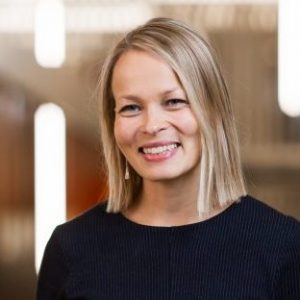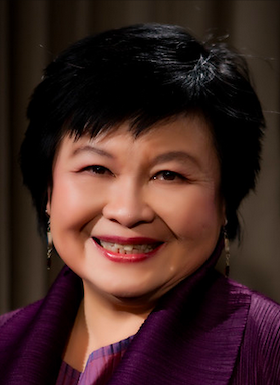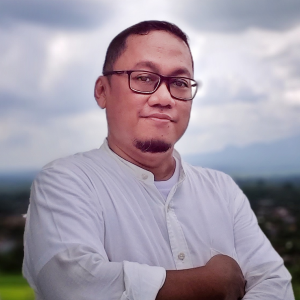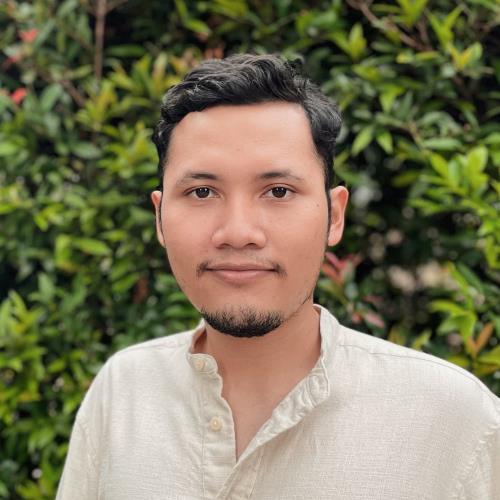Incentivising Tech Companies for Actions in Narrowing Digital Divide: Learnings and Opportunities Forward
World Benchmarking Alliance
Session 501
With the global pandemic hitting the world since 2019, we witness a fast change in social lifestyle and methods of doing business in our everyday lives. Beyond gender and ages, people have become more dependent on digital technology in performing their official duties and personal matters. For example, meetings have shifted from physical to digital, running errands have become easier with ‘a single click’ within Online-to-Offline (O2O) platforms, the boundaries between school classes and homework have narrowed down with learning activities could be done anywhere. With such increasing dependencies to digital tools in the past years, the global economic transformation brought by the tech sector is forecasted to enable $5.5 trillion to $12.6 trillion in value globally US$ 12 trillion by 2030 globally.
While it is acknowledged that digitalisation has brought positive changes to our world, it must be noted as well that technology has made development gaps even more visible among different geographies all around the world. Challenges to key social aspect have also become apparent since the rapid penetration of the internet, such as on the applicability human rights in the online space, emerging new skills, online child protection, responsible artificial intelligence (AI), personal data protection, etc.
Acknowledging the growing domination of digital technology to our world, regulatory landscape must be responsive in catching up with opportunities provided by this sector. Across the globe, multilateral platforms have put ‘digitalisation’ as at core of priorities. In the run up of the world to have its first Global Digital Compact, led by the UN, other multilaterals such as The Indian G20 Presidency 2023 are calling for ‘Data for development’ to colour its annual thematic while the Japanese G7 Presidency is intending to put a focus on the promotion of trustworthy emerging technologies.
To champion inclusive digital transformation agenda worldwide, governments must also consider that tech companies have important role to play in enabling digital inclusion. Hence, the efforts to narrow digital divide must be done by joining hands with the corporate. It is within the purpose to this policy dialogue to explore the learnings and opportunities forward.
The objective of this policy dialogue is to consider key learnings and opportunities of creating an enabling policy environment that incentivises the tech sector to perform actions in narrowing digital divide. This session will explore how strengthened corporate accountability in the tech sector could support the governments’ efforts in universalising access to digital ecosystem to everyone. Having such policy in place would enable the tech sector to lead meaningful system change in the digital space and further to contribute to the accomplishment of the 2030 Global Goals and feed into recommendations to the UN Global Digital Compact.

Pauliina leads the WBA’s advocacy and outreach strategy for the WBA and its benchmarks, building and strengthening relationships with diverse stakeholders, including investors, civil society and governments, working to ensure that the Alliance is inclusive and relevant globally. Pauliina joined the WBA from Aviva, a global insurance company and asset manager, where she was Head of International Government Engagement. At Aviva, Pauliina drove forward international policy development and advocacy campaigns on sustainable finance and trade and investment, working closely with multi-lateral institutions such as the UN, G7 and G20. Pauliina ran the company’s global stakeholder and political engagement strategy, to change the rules at the highest level so that capital is deployed to drive sustainable growth.

Mei Lin Fung is the Chair of the People-Centered Internet and co-founder of the institution with Vint Cerf. She is passionately founding the Impact Network in 2017 and works closely with the IEEE Industry Connections Social Impact Measurement, which she is chair of. Her role incorporates the voice of the people and the voice of the community, which we believe is vital in measuring social impact for sustainable outcomes.
She joined the 200,000-member Health Occupation Students of America/Future Health Professionals as a point person for Global Network Outreach. As co-founder of the California Health MRC - Medical Reserve Corps - she is pioneering youth engagement in assuring a healthy future for generations to come.
In her final role as Socio-Technical Lead within a four-year project for the US Dept. of Defense to look at the Future of Health, she was the subject matter expert for Networked Improvement Communities. She designed Roundtables for government and community leaders to devise the Healthy Community Collaboratives of America. The leaders we convened work with budgets representing over 50% of all spending in the US on Healthcare.

Indriyatno Banyumurti is a digital literacy activist and currently serves as Executive Director of ICT Watch – Indonesia. ICT Watch is a civil society organization that has been advocating and educating digital literacy since 2002 and has been awarded the WSIS Prizes from ITU – UN in 2017. In his work, Indriyatno often travels around Indonesia to empower Indonesian people in using the Internet in a creative, productive, and positive way. One of the flagship programs currently being implemented is Jawara Internet Sehat. (Cyber Wise Champion), which encourages local initiatives from various regions in Indonesia.

Daniel is eSafety’s Industry Affairs and Engagement Manager, overseeing the online safety regulator’s industry stakeholder engagement strategy and advancing its world-leading Safety by Design initiative. With a focus on proactive and systemic change, Daniel’s team collaborate with the technology industry to make online experiences measurably safer and more inclusive. Prior to joining eSafety, Daniel was an Executive Manager at Australian data analytics firm Quantium, where he was responsible for delivering governance frameworks focused on topics such as the ethical use of data, privacy and cybersecurity. Daniel also has experience leading and building teams in a high growth start-up environment having spent 7 years at online marketplace, Groupon.

Camelia Loh has over 17 years of experience in the executive search industry specializing in various sectors, and has witnessed the evolution of the industry from traditional to modern, AI-powered platforms.
Recognising the mismatch between education and employment, Camelia founded Kabel, an ecosystem that offers a comprehensive *AI-guided solution for career navigation*. From career assessment and personalised portfolio building to experiential learning opportunities, Kabel helps young people build work skills that complement their studies and navigate their way from education to employment, matching them with careers that align with their skills, interests, and values.
By addressing human capital development at its root, Kabel is committed to social responsibility and providing equal opportunities for youth to achieve their career goals and secure financial and social stability. Our ultimate aim is to build a competitive and productive workforce that drive sustainable economic growth.

Dio Herdiawan Tobing is the Head of Public Policy (Asia) at the World Benchmarking Alliance, a global organisation that publishes free and publicly available benchmarks on the world's most influential companies' contribution to the Sustainable Development Goals. Dio has been working in the sustainability sector since 2018, starting off his career as Senior Policy Advisor to the Dutch Embassy in Jakarta, ASEAN Officer for the International Organisation for Migration (IOM) in Jakarta, and most recently consulting for ASEAN Foundation for regional research that forecasts youth employment and skills in Post-COVID19 as well as WhatsApp’s Social Impact Programmes in Indonesia and Globally. Moreover, Dio is a StuNed Fellow 2017-2018, a Dutch Government Scholarship Award, completing his Master’s in Public International Law at Leiden University, the Netherlands.
-
 C1. The role of governments and all stakeholders in the promotion of ICTs for development
C1. The role of governments and all stakeholders in the promotion of ICTs for development
-
 C3. Access to information and knowledge
C3. Access to information and knowledge
-
 C6. Enabling environment
C6. Enabling environment
-
 C7. ICT applications: benefits in all aspects of life — E-government
C7. ICT applications: benefits in all aspects of life — E-government
-
 C7. ICT applications: benefits in all aspects of life — E-employment
C7. ICT applications: benefits in all aspects of life — E-employment
-
 C10. Ethical dimensions of the Information Society
C10. Ethical dimensions of the Information Society
-
 Goal 8: Promote inclusive and sustainable economic growth, employment and decent work for all
Goal 8: Promote inclusive and sustainable economic growth, employment and decent work for all
-
 Goal 9: Build resilient infrastructure, promote sustainable industrialization and foster innovation
Goal 9: Build resilient infrastructure, promote sustainable industrialization and foster innovation
-
 Goal 16: Promote just, peaceful and inclusive societies
Goal 16: Promote just, peaceful and inclusive societies
-
 Goal 17: Revitalize the global partnership for sustainable development
Goal 17: Revitalize the global partnership for sustainable development